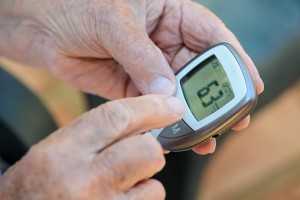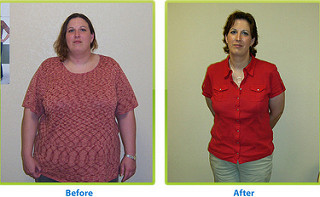Think Youre Not Good Enough? Guess What? You Are!
Eventually, all teachers and counselors find that almost all our students and clients wonder, "Am I good enough?" Sometimes, they worry about being attractive enough, or smart or successful enough. These are just a sampling of the doubts that all people (except narcissists) have about themselves. When clients begin to trust me, even some of the most blessed and accomplished people in the world (and I work with a number of them) will tell me they think they are not OK the way they are.
When we wonder, "Am I _______ enough?" the answer we almost always give ourselves is "No." What a tragedy. How can anyone be happy who believes they come up short in these ways?
As a counselor who specializes in weight control, and the author of The Anderson Method -- Secrets of Permanent Weight Loss, I find that many people who want to lose weight think that losing weight will cure their deficiencies. If only they could lose weight and be thin enough, they'd be happy. They'd be attractive. They'd be successful.
However, they are on a wild goose chase. Losing weight will not make us any of those things if our belief is that we are unacceptable the way we are right now. On the other hand, if we can start believing that we are OK just the way we are, we've got a good shot at all of those other things -- thin, successful and happy.
You're probably surprised to hear a weight loss counselor saying this. It's often assumed that I must find overweight people unacceptable and not OK until they solve their weight problem. Nothing could be further from the truth. In fact, I teach clients that unconditional positive self-regard (liking, loving and accepting yourself as you are) is a prerequisite for permanent weight loss and happiness. We need to love ourselves even when we are fat, poor, not pretty, not a genius or not successful, if we are to enjoy the best of any of those conditions. When we judge ourselves not good enough in these areas of life, we often feel anger or shame instead of love for ourselves. That's a problem, because we tend to punish or neglect things we don't love. We need to love ourselves, even with all our faults, and only then can we generate the self-care to improve our conditions. We take care of those we love and neglect and hurt those we don't, even when it's us.
When I was big fat failure, I hated my body and I was ashamed of myself. I tried so many times to be better, and with each failure I felt worse and worse about myself, nowhere near good enough for anything. When I was told I needed to love my fat body just as it was, I was shocked. How could I do that? I hated it. How could I think I was good enough when I could not follow through on anything? I was taught to hold people like that in contempt.
My painful experiences led me to some very important lessons. I learned that all human beings make mistakes and have failings. The unhealthy response is to find fault, criticize and scold. The healthy response is to forgive the mistakes and shortcomings, be kind and be helpful. I was no less deserving of this compassion than any other flawed human being. When I started being forgiving and accepting instead of feeling contempt and judgment, things changed.
You are good enough this very moment to be loved and accepted and healed. Believing this is a matter of deciding to adopt the healthy response to mistakes and failings -- to forgive, be kind and helpful. When you do, you decide you don't need to do anything else to be OK. Your weight, your body, your looks -- they are all good enough. You are smart enough. You are successful enough. You are good enough as you are, to be embraced, accepted and helped by anyone with the right thinking and spirit. Anyone, including you, who thinks otherwise, is on the wrong track and needs to get on the right one. You're OK just as you are, plenty good enough to deserve whatever blessings are coming your way.
Yes, you may be suffering ill health. You may be overweight. You may be impoverished in one way or another. But you have all that is needed within you and around you to deal with those problems. Yes, you will need to learn more. Yes, you will need to work. Yes, you will need to change. But you are capable of doing all those things because you are good enough to make those things happen. And when you decide to believe that, you are ready to be happy.
William Anderson is a Licensed Mental Health Counselor who specializes in weight loss, eating disorders and addictions. He is the creator of "Therapeutic Psychogenics", which helped him lose 140 pounds permanently thirty years ago after years of obesity and dieting failure. He has written a book about it, The Anderson Method, and he is teaching these techniques to individuals and therapists all over the country.
For more by William Anderson, MA, LMHC, click here.
For more on emotional wellness, click here.
-
Losing Weight Naturally – The Honest Truth About Cardio…
While its undeniable that any form of exercise is better than no ex
-
20 Herbs & Spices For Flavorful Weight Loss
-
Book Review: The Ultimate Calorie Counter
This book review is part of a series that covers the topic of Diet
-
5 Easy Weight Loss Tips You Can Use Right Now
Sometimes, just the thought of starting on a diet and fitness regimen
-
Robotic Technique Shows Promise In Weight Loss Surgery
Weight Loss Surgery Surgeons at the Stanford University School of Medi
-
Weight Loss After Pregnancy
Weight loss following pregnancy and hanging up the tent sized mat
- DON'T MISS
- How To Fight Cravings And Achieve Your Diet And Weight Loss Goals
- The Only Tip You Need For Weight Loss Success
- Eating Your Way to Health with Salad Cucumber ?La VinBar
- Mid- Night Snacks That Fight Fats
- Do Nutritional Supplements Support Weight Loss?
- Tips And Advice To Help You Lose Weight
- Burn Calories In A Better Way
- Lose The Weight And Keep It Off With These Tips
- Personal Transformation Program By Sri Siva
- Popular Diets That Promise Weight Loss




